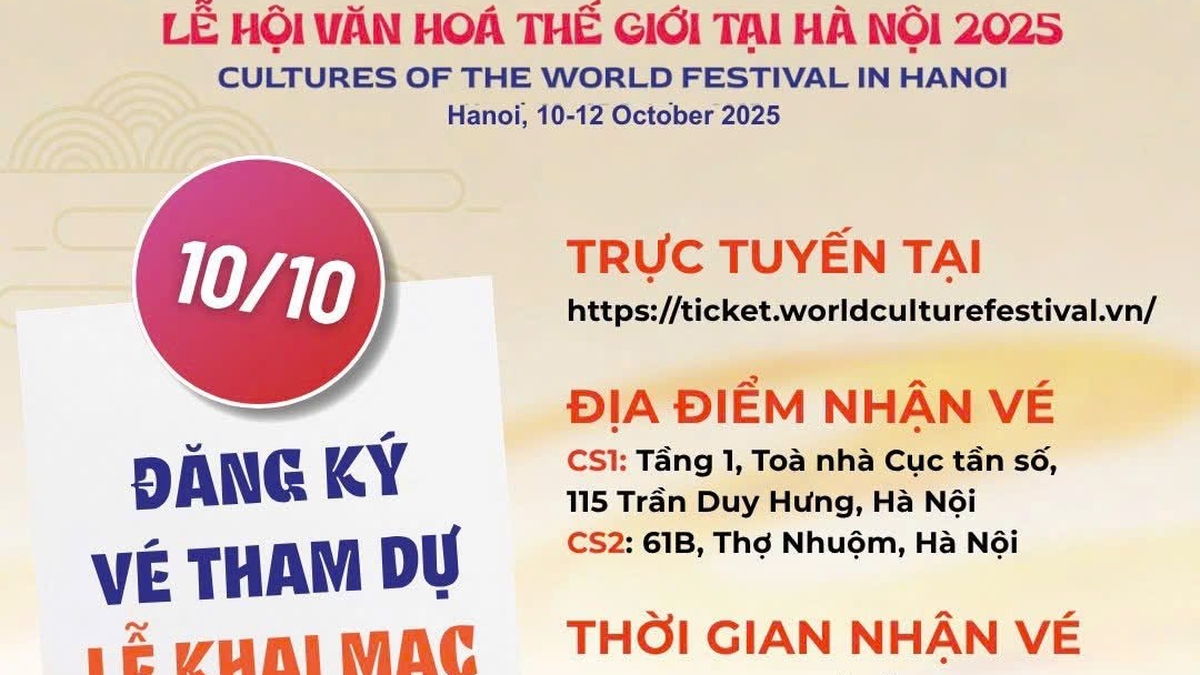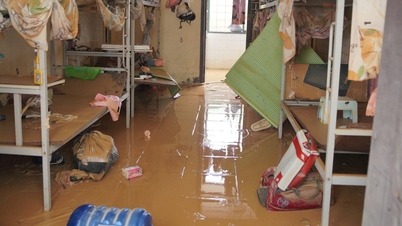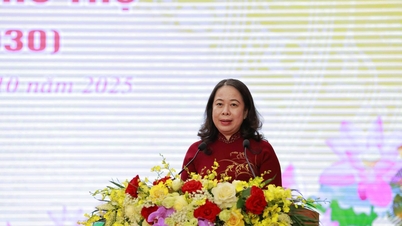
Candidates learn information at the 2025 University - College Admissions Consulting Day organized by Tuoi Tre newspaper - Photo: THANH HIEP
Over the years, international university rankings such as Times Higher Education (THE), QS World University Rankings or US News & World Report have become popular tools to evaluate and compare the quality of education between universities globally.
High rankings are often seen as a testament to academic prestige, helping schools attract good students, international faculty and large research funding sources.
However, in recent years, a series of prestigious universities have announced their withdrawal or no longer participating in these rankings (see Tuoi Tre on October 6).
Reacting to biased evaluation criteria
The first reason lies in the measurement method and the set of evaluation criteria. Many schools believe that current ranking systems are too biased towards quantitative indicators such as the number of international articles, citation index or the proportion of foreign lecturers, while ignoring qualitative factors such as teaching quality, social impact or the level of happiness and sustainable development of students.
Another reason comes from the competitive pressure and the consequences of the “ranking race”. When the position on the rankings is considered a measure of reputation, many schools are forced to restructure their operations to “achieve high scores” according to criteria instead of focusing on teaching quality and academic innovation.
Not only Western universities, some Asian universities also proactively left the rankings for similar reasons.
Universities such as Renmin University, Nanjing University and Lanzhou University (China) announced that they will no longer participate in international rankings in order to "develop education with Chinese characteristics" and avoid dependence on Western criteria.
This move demonstrates the spirit of academic autonomy and affirms national educational identity, emphasizing that university development does not necessarily depend on standards set by some international organizations.
In the context of globalization, protecting individual values and avoiding "homogenization" of educational models is necessary to maintain diversity and creativity in knowledge.
Another issue that is often criticized is the reliability and transparency of the ranking data. Most rankings are based on self-reported data from schools and reputation surveys, which are highly subjective.
Academic reputation, while valuable, is easily influenced by media coverage, language, or long history—factors that do not accurately reflect current competence.
Some experts point out that schools can “optimize” data to improve rankings without actually changing the substance, making the rankings more of a marketing tool than an academic one. So the withdrawal of some schools is not a rejection of the need for benchmarking, but a statement on the protection of academic integrity and freedom.
Useful matching tools
However, it is important to recognize that not all schools have the same conditions as the “top universities” to assert their position without rankings. For many developing universities, especially in Asia, Africa or Latin America, international rankings remain a useful comparison tool.
Knowing where you stand in the global education landscape helps schools identify their strengths and weaknesses and plan appropriate development strategies.
Rankings also promote a culture of evidence-based assessment, encouraging institutions to publicly disclose data on scientific publications, international collaboration and training effectiveness, factors that are often limited in developing education systems.
If understood and used correctly, rankings can become a "mirror" instead of a "racetrack".
The National University of Singapore (NUS) is a prime example: from not being in the world's top 100 in the early 2000s, NUS has leveraged QS Rankings indicators to build a strategy for research investment, program internationalization, and academic collaboration.
In Vietnam, Hanoi National University, Ho Chi Minh City, Ton Duc Thang University, Duy Tan University, Hanoi University of Science and Technology... are also successful examples.
They use data from QS and THE to improve their scientific publishing capacity, expand international collaboration and standardize management processes. Rankings improve, but more importantly, the quality of training and the actual competitiveness of the school also increase.
Become a driver of innovation
Participating in rankings forces schools to make data public, be accountable, and maintain academic transparency.
At the national level, data from rankings can assist regulators in policy making, budget allocation and targeted investment direction, avoiding over-dispersion.
In addition, the rankings also create a "common language" of global education, helping schools easily identify compatible partners, expand research cooperation, student exchanges and cross-border credit recognition.
The key is to change the way we think about rankings: seeing them as tools for benchmarking and development, not badges of prestige. Then rankings will encourage progress rather than foster “achievement disease”.
Need a conscious and strategic approach
The fact that many of the world's major universities are leaving the rankings is not a sign of crisis but a warning: quality cannot be measured by numbers or positions but must be seen through real impact on society, science and people.
However, for developing schools, engaging with rankings with the right attitude, seeing them as a reflection tool, not a title, is still a necessary direction. Schools need to build a development strategy based on data, transparency and accountability instead of just chasing positions.
Only then will rankings truly become a lever for real quality, real transparency and sustainable development, true to the core mission of higher education: serving knowledge, people and the future of society.
Source: https://tuoitre.vn/xep-hang-dai-hoc-tam-guong-soi-thay-vi-duong-dua-20251009081828186.htm






![[Photo] Prime Minister Pham Minh Chinh chairs the Conference to deploy the National Target Program on Drug Prevention and Control until 2030](https://vphoto.vietnam.vn/thumb/1200x675/vietnam/resource/IMAGE/2025/10/09/1759990393779_dsc-0495-jpg.webp)
![[Photo] Prime Minister Pham Minh Chinh chairs a meeting of the Government Standing Committee on overcoming the consequences of natural disasters after storm No. 11](https://vphoto.vietnam.vn/thumb/1200x675/vietnam/resource/IMAGE/2025/10/09/1759997894015_dsc-0591-jpg.webp)





























































































Comment (0)